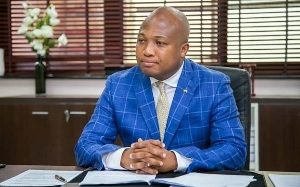Many asked a similar question when July 1, Republic Day, was marked with a holiday.
What has the Republic achieved to celebrate? They asked. I answered the question by saying we do not celebrate Independence Day with marches and speeches because we have achieved so much since March 6, 1957.
It is a National Day which we celebrate just as the French do on July 14 and the Americans on July 4. It is like a birthday which the intelligent mark by joyful appreciation of achievements in the past year, and a resolution to do better.
We have little to celebrate on the anniversary of the African Union (AU). We should nevertheless mark the occasion by serious reflection about its achievements and failures over the years and its relevance today.
There is no doubt that the AU is in disarray. Many African countries are plagued by internal strife and economic and social malaise. Perhaps that is even more reason to mark AU day and ask wither Africa?
As we reflect, it should be clear that our country is part of the problem, and as citizens, we have a duty to promote the ideals of the AU in our country and in our individual beliefs and behaviour.
Our beliefs and aspirations are influenced by our upbringing. It is difficult for the young African to believe that he or she can become a great scientist or an inventor when invariably featured celebrities are European or non-African.
The young Ghanaian reads and learns about the literary giants of Britain, Europe and America. He or she quotes their wise sayings and writings and knows little about the wise observations of the great of Africa and other lands.
The impression is created in the recess of the mind that deep thought comes only from the West. The writings of Africans from the diaspora are not often identified as coming from their own kind because they often have non-African names.
When it comes to science and inventions, it is mainly in the European's domain. African achievements are often ignored.
At secondary school, I learnt that it was the British who made fundamental discoveries in chemistry and physics. At University, I found that my British friends had similar ideas. The belief in British superiority spread to other fields and there was the erroneous belief that the second world war was won largely by British ingenuity and bravery.
The ideas we imbibe at school and in our upbringing shape our world view, national pride, and personal self-confidence. Some indoctrination infiltrates the educational system. We should not be squeamish about this.
We in Ghana cannot ignore the powerful effect of what we learn at school, how we learn and the influence of what we read.
I quote Shakespeare, Mann and Cervantes more readily than African writers. We should, therefore, read about writings and achievements of Africans so that we realise that we are the equals of other peoples in thought and achievements. That is the only way of stopping the incipient inferiority complex which threatens African youth.
I have attended meetings of the Historical Society which has a strong presence at the University of Cape Coast. It should promote writings of our past. Professor Irene Odotei and Professor Baku of Legon have a lot to teach.
Our students should, at school, know about Imhotep (the father of medicine), Anton Amo, Chinua Achebe, Aimé Césaire, Akrofi, Ottobah Cuguano, Marcus Garvey, Booker Washington, Ras Abebe Aregai, Yaa Asantewa, Ocansey, Tackie Tawia, Azikiwe, Kwaku Dua II, Hutton Brew, Togbi Sri, Mansa Musa and Suni Ali Ber, to name only a few. The experts will agree that we need to modify or change the context of historical knowledge at school.
The achievements of people of African heritage in science should be highlighted.
Ghanaians should know about African-American Ben Carson who was the son of poor parents in Detroit, but became the first neuro surgeon to separate Siamese twins joined at the back of the head and has since successfully performed many hemispherectomies.
They should also know and take pride in the achievements of Africans like Dr Patricia Bath who invented a tool which used laser to vaporise cataracts. There are many African pioneers whose work should make our people know that Africans are second to none.
On the political side, we should popularise the work of nationalists like Paa Grant, who supported the freedom fight without asking for an exalted position within the party.
So as we mark African Union day, let us find out where we have gone astray and what we as individuals can do to promote the march of Africans.
Opinions of Wednesday, 1 June 2016
Columnist: K.B Asante
Why should we celebrate African Union Day?
Entertainment


















